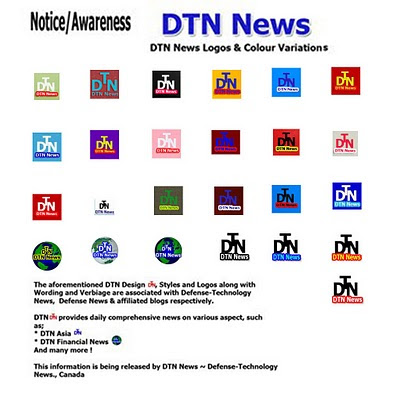(NSI News Source Info) November 17, 2008: The global media have been discussing the health of North Korean leader Kim Jong Il since September, after he failed to show up at several important official events, including celebrations of the 60th anniversary of the Democratic People's Republic of Korea. This sparked rumors of illness and a possible stroke.
In reality, nobody, except several top North Korean officials, knows anything about the health of Kim Jong Il. However, alarmist rumors and allegations concerning his bad health and imminent death imply that a bloody power struggle might erupt between the Workers' Party of North Korea and the army or inside the Kim Jong Il clan.
The authors of these rumors are also discussing North Korea's complete collapse. They believe China might decide to deploy troops in the country, that the United States would retaliate, and that another Korean war would flare up.
Despite these rumors -- actively circulated by the Western media -- one thing is certain: The North Korean sociopolitical situation remains absolutely calm and stable.
Indeed, the possible appointment of a new North Korean leader in the foreseeable future will not cause a nationwide collapse or any other major upheavals.
The outside world knows nothing about Kim Jong Il's possible successor and is forced to speculate whether he will be replaced by one of his sons, his daughter or his wife.
Many analysts are talking about collective leadership but are divided on its lineup. Some believe that the new government will be dominated by generals in line with the recent "army-priority" policies. Still others think that the Workers' Party of North Korea is reinstating its leading role and that the country would be run by a party-controlled collective leadership.
It appears that power in North Korea will change hands in line with a preliminary scenario. Although we do not know its contents, this scenario obviously exists. Consequently, all changes will be calm, with the North Korean government retaining control over the situation.
Domestic policy and foreign policy continuity will be preserved. The new North Korean leadership will steer toward gradual and extremely cautious market-oriented reforms and will search for ways of completely normalizing relations with the United States and Japan.
This theory is supported by Barack Obama's victory in the latest U.S. presidential elections. Pyongyang hastened to state its readiness to mend relations with Washington, if the latter reciprocated. Obama has also voiced his intention to negotiate with the North Korean leader after he is inaugurated.
Consequently, there is no reason to worry about possible destabilization on the Korean Peninsula, rising tensions and a hypothetical regional armed conflict.
In this connection, all the concerned parties must display tact and restraint while commenting on Kim Jong Il's health and discussing future relations with new North Korean leadership.
Any negative scenarios would be caused by external, rather than North Korean, developments. For instance, relations between the Republic of Korea and Pyongyang could continue to worsen, because the administration of South Korean President Lee Myung-bak has revised the heritage of his two predecessors and the entire North Korean policy.
Any manifestations of hysteria in connection with possible North Korean changes and the drafting of hostile contingency plans on this basis can seriously complicate relations with Pyongyang from the very outset and force it to implement tougher domestic and foreign policy measures.
Washington and Seoul are now actively discussing various military-political scenarios under the Concept of Operations Plan 5029 for dealing with the possible collapse of the North Korean regime.
Pyongyang is becoming more concerned and distrustful in the context of U.S.-South Korean attempts to convert this document into Operations Plan 5029.
South Korean analysts close to national government agencies are calling on Seoul to take advantage of possible North Korean problems caused by a hypothetical reshuffle in high places and to facilitate Korean reunification in line with the South's terms.
In the last few months South Korean non-governmental organizations have been using balloons to drop propaganda leaflets over North Korea beyond the demilitarized zone. Such actions are also aimed at changing the Pyongyang regime.
After Seoul ignored repeated North Korean warnings, Pyongyang decided to close the land border starting Dec. 10. This will inevitably impair the steadily dwindling inter-Korean cooperation.
Some analysts are saying with reason that Seoul, which is stating its desire to salvage and expand bilateral cooperation, nonetheless has diametrically opposite plans.
Such actions could induce Pyongyang to implement tough defensive measures and would spell negative prospects for reformist plans being implemented since 2002.
However, Pyongyang would continue to gradually modernize its socioeconomic system if other countries display a tranquil and friendly attitude.
Late North Korean leader backed nuke-free world: report
Declassified Chinese papers reveal North Korea's late founding leader Kim Il-Sung expressed his desire for denuclearisation just months before backing China's atomic ambitions, a report said Sunday. Yonhap news agency, citing a Chinese dossier from Beijing's national archives, said Kim's wish to rid the world of nuclear weapons was set out in a letter to then Chinese Premier Zhou Enlai in 1964. But in correspondence the following year, Kim congratulated China on its successful atomic tests and advocated Beijing's nuclear development as a defensive measure against US nuclear threats, Yonhap said.
"Eternal President" Kim Il-Sung, who died in 1994, is the father of Kim Jong-Il, the current leader of the communist state, a self-declared nuclear power since a 2006 atomic test. In a declassified letter dated October 30, 1964, Kim senior told Zhou that North Korea favoured banning and destroying all nuclear weapons. "The Democratic People's Republic of Korea (North Korea) has consistently maintained that nuclear weapons should be completely banned and nuclear weapons should be thoroughly destroyed," Kim said in the letter, according to Yonhap.
"The Korean people will stand shoulder to shoulder with the peace-loving people of the whole world for the realisation of the complete ban and thorough destruction of nuclear weapons." However, Kim Il-Sung wrote on May 17, 1965 to then Chinese leader Mao Zedong following Beijing's second successful nuclear test: "China's achievements will play a big role in coping with nuclear threats from the imperialist US and protecting the peace of the people of socialist countries." The letters were included in diplomatic documents declassified by the Chinese Foreign Ministry, Yonhap said. A Chinese foreign ministry statement said the time needed to process an application to see the documents was 20 working days.

















No comments:
Post a Comment